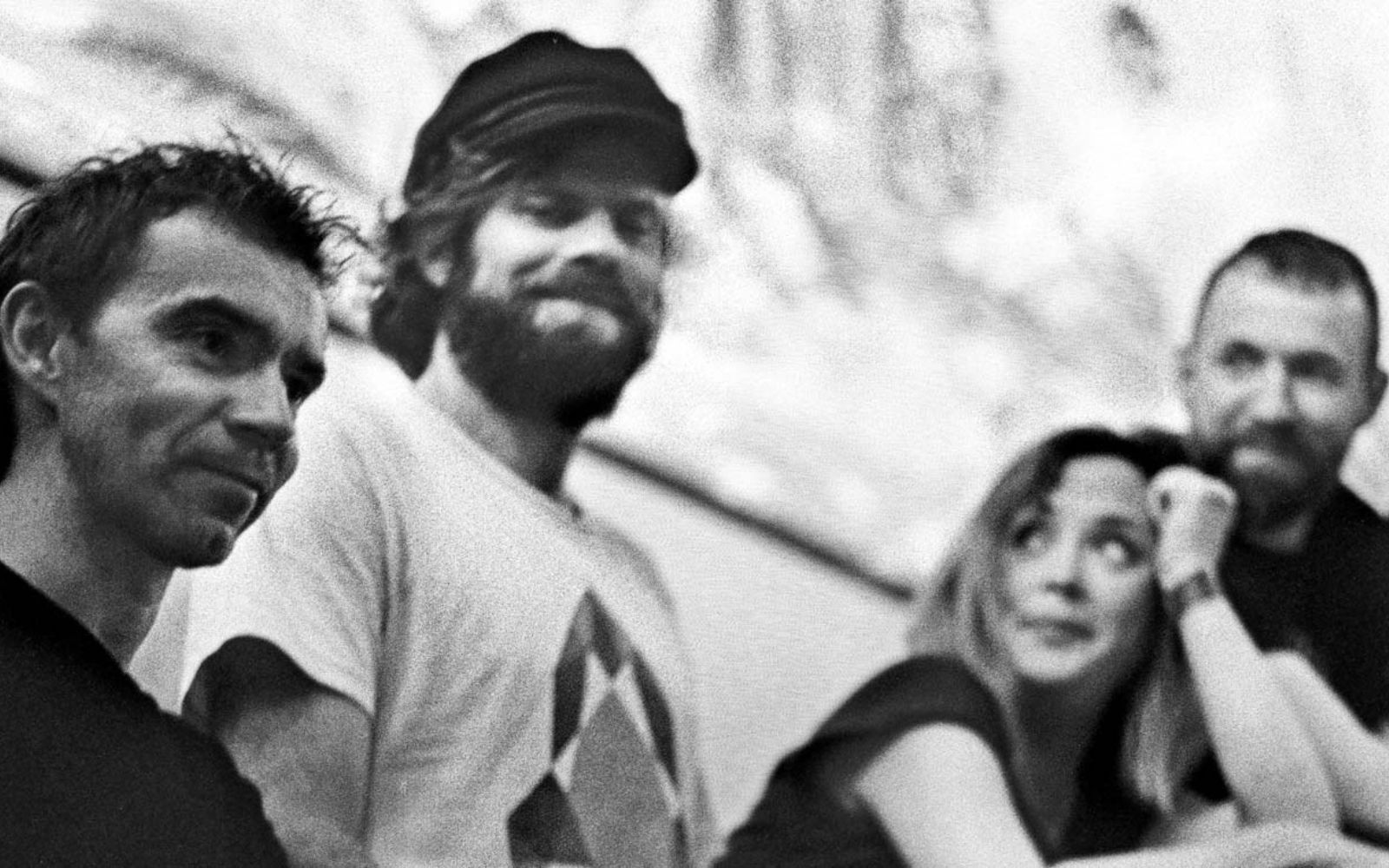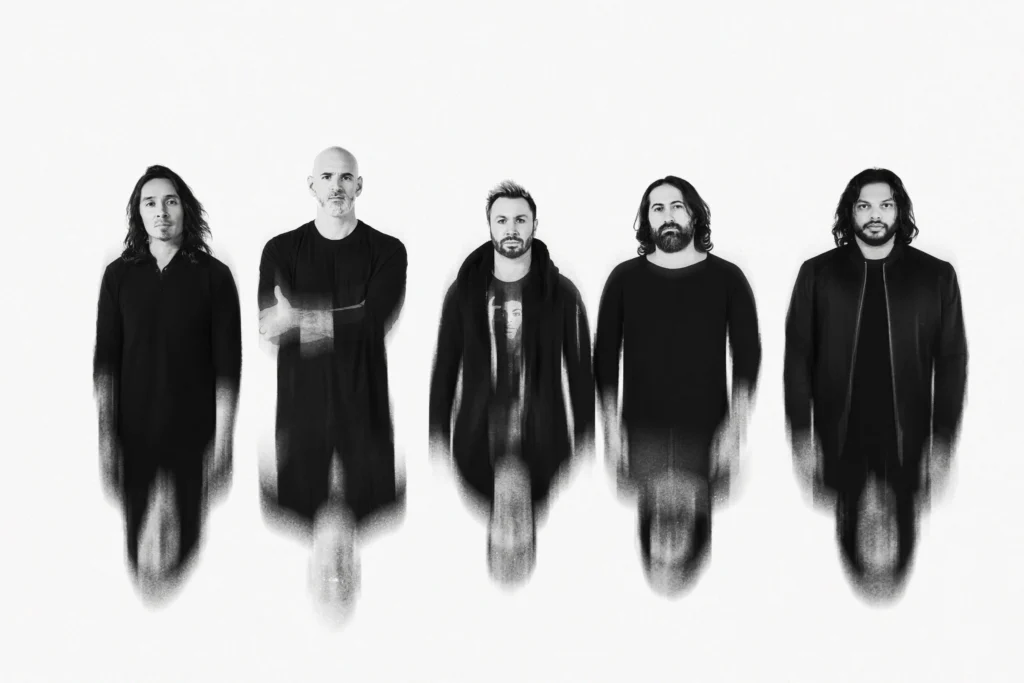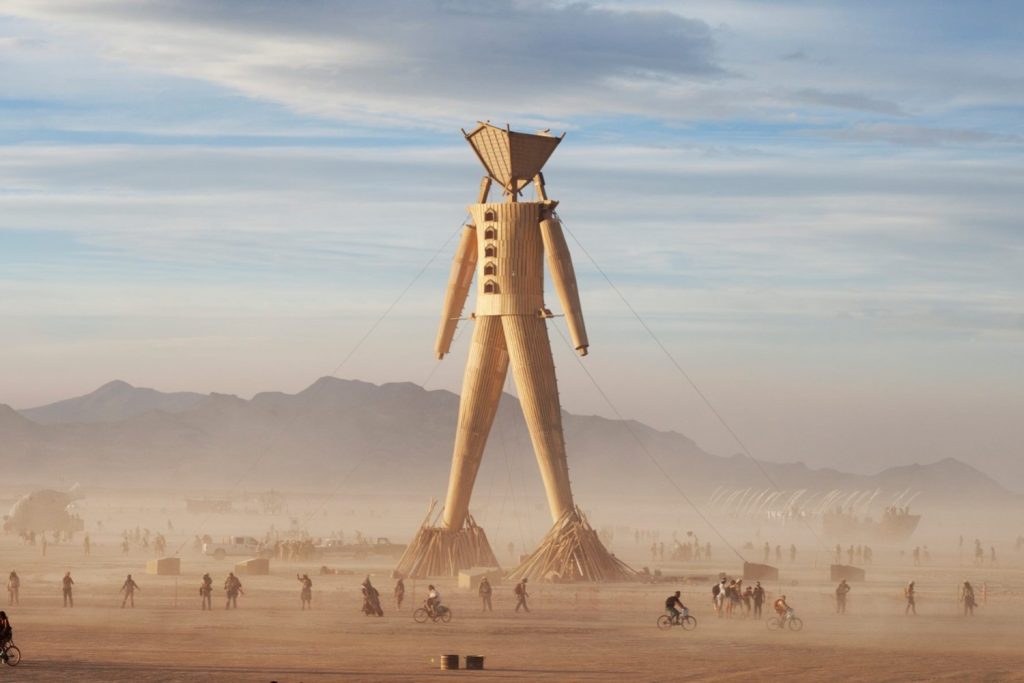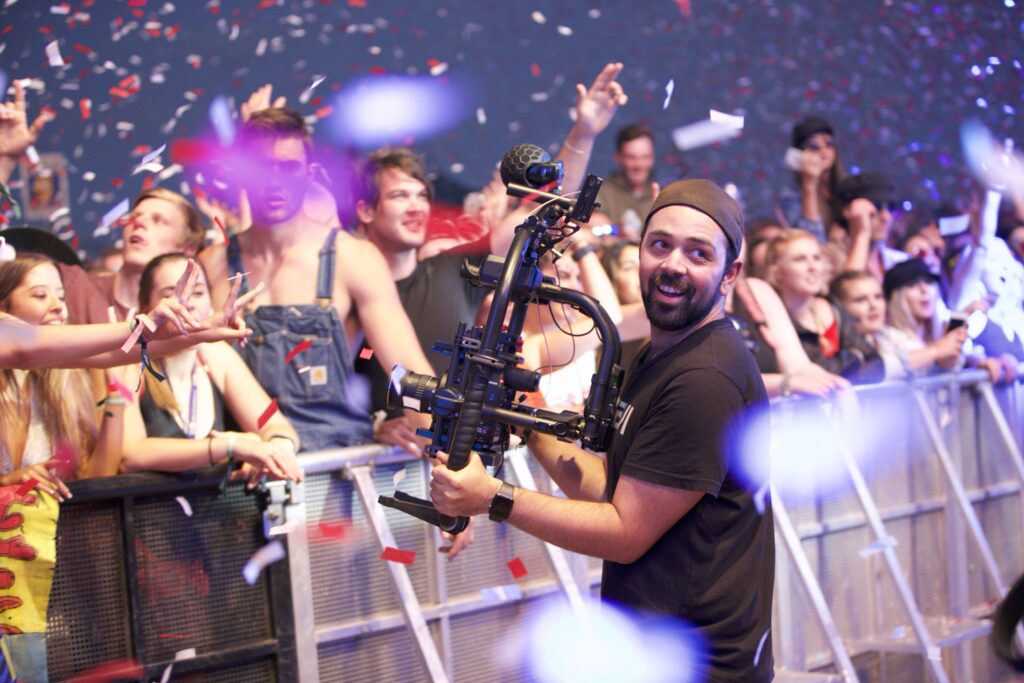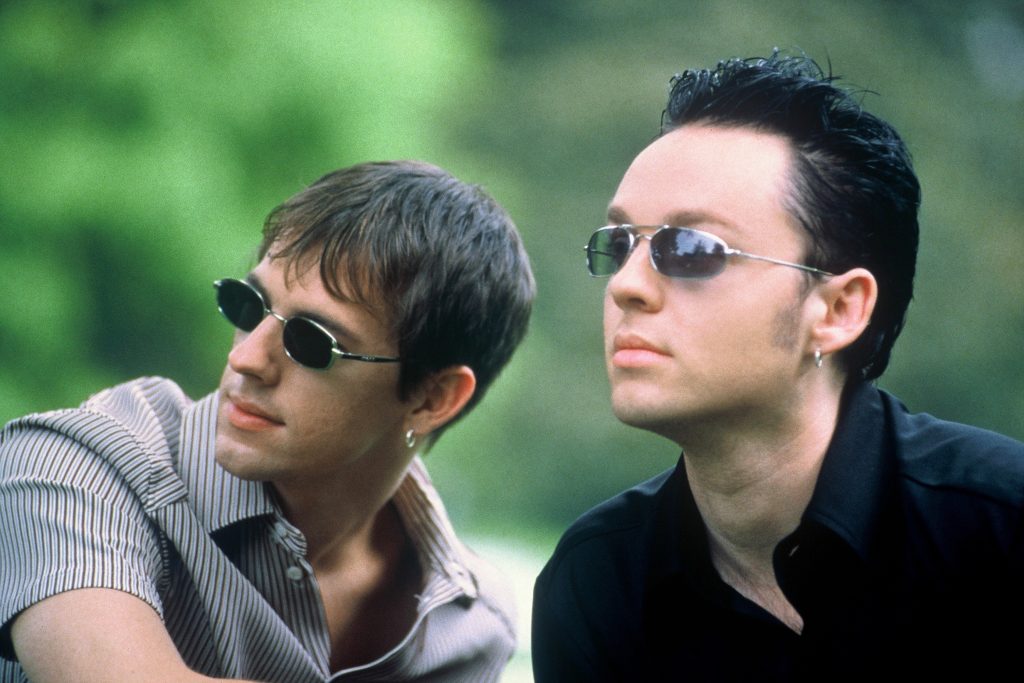After a string of rescheduled shows across Australia due to injury to drummer Simon Scott, England shoegaze icons Slowdive are gearing up again to grace our shores in July.
This time however, they come with the announcement of their new album Everything is Alive due September 1st on Dead Oceans. We spoke to bassist Nick Chaplin in between rehearsals for their upcoming slot at Glastonbury about the ripple effect of Covid and tighter government regulations for touring artists, and the newfound pressure of the band becoming a mainstay in the indie realm, rather than another legacy act.
Slowdive were heralded as being at the forefront of the Uk shoegaze scene in the early 1990s, before rising pressure from critics and the impending collapse of Creation records saw the band destined to fade into reverb-drenched obscurity. The members continued in other projects such as Mojave 3 and respective solo endeavours before a resurgence in popularity and a newfound reverence for their 1993 LP Souvlaki urged on a string of reunion shows in 2014 and their self-titled 2017 album. The band have just now released their first music in six years, the first single Kisses from their new album.
Keep up with the latest music news, features, festivals, interviews and reviews here.
“I think it was so different in 2017 compared to what we were used to in the 90s. I suppose the difference this time is we probably feel a bit more pressure because for the last record, no one ever expected to hear from Slowdive ever again. The gigs that we did when we came back in 2014 were so well received and we always planned to make new music and I think there was so much goodwill and surprise that we’d come back at all. It was like “Well we’re gonna put this record out and see what happens” and it went down very well, whereas this time we do probably feel like the novelty factor has worn off. People are used to us being around again so I think people are probably expecting maybe a little bit more from us this time.”
As well as having a legion of die-hard original Slowdive supporters, the band have been part of the wave of 20th-century artists who have been pushed back into the collective forefront due to the rise of the internet and greater access to a wider variety of music. My first introduction to the band was on a sleepless night in my school years when I stumbled across a Pitchfork documentary on Souvlaki during the band’s hiatus, absolutely shattering my expectations of what music could be, and bringing a lifetime of debt spent on endless guitar pedals trying to replicate these new sounds. I mention to Nick my experience seeing Pavement earlier this year where instead of the expected crowd of men in their 40s to 50s milling about in Fontaines DC t-shirts, I was surprised to find a wide variety of ages amongst the crowd with many most likely not being born during the band’s height of popularity. I pose to him how Slowdive have adapted to their newfound younger audience base, and the shifting tide of attitudes away from placing importance on whether music is relevant towards quality instead.
“We’ve identified that we’ve got quite a young audience and we identified that quite early on when we got the band back together, and we’ve really tried to cultivate that as much as possible I suppose. Not that there’s anything wrong with a bunch of 50-year-old blokes standing around because that’s what we are you know, you can’t lose sight of that. It’s really nice to see that there are people in their 20s and younger coming out. We’re obviously coming back to Australia soon and there’s one show in Melbourne we didn’t manage to to to get as an all-ages show, and quite a lot of people were upset about that and we’re obviously sorry that we weren’t able to swing that this time around, but at the same time it’s gratifying there are people of an age that can’t go to a show that want to see Slowdive. It’s kind of weird for us because we’re all in our early 50s and it was a long time ago that we were 18 but we’re grateful for it!”
As Nick talks I can hear the band walking around in the background and making coffee during their brief break in rehearsals for Glastonbury in a few days. Playing on what was previously the John Peel stage and sandwiched between acts like alt-pop icon Caroline Polacheck and British Post-Punks Shame, I ask Nick how the lead-up is to their first time playing the festival.
“We’re down in Devon in the southwest of England at the moment which is close to where Rachel lives and we’ve just booked a rehearsal studio out for a week, and we’ve got a small warm-up show in the city of Exeter on Saturday night because we haven’t played live for a while and then it’s our first time at Glastonbury on Sunday. I think festivals will hopefully be a bit busier next year as we were on quite a tight schedule to get this record out, and then we’ve got our own shows really mostly this year so I think it’ll probably be busier next summer for festivals.
“The main thing is we’re just super relieved and glad that we have managed to reschedule the Australia dates and throw in some extra ones as well, we felt so bad about that you know, we’ve never had to pull shows like that before in fact I don’t think we’ve ever pulled a show before. So it wasn’t something that we took lightly and we’re just glad that we can get back in a couple of weeks and hopefully people that were really pissed off with us all forgive us.”
I assure him that Australian fans will be willing to forgive and forget, especially with the additional rescheduled dates and promise of new music. In a statement released earlier this week, the band spoke of their upcoming album and dedicated it to both Rachel Goswell’s mother and Simon Scott’s father, who both unfortunately, passed away in 2020. Beginning recording in the fall of that year against the backdrop of this loss and the Covid pandemic, early signs of the record seem to oppose this context with a brighter sound.
Although the trademark distant vocals and shimmering guitars remain, the band seem to be headed towards a more direct and uplifting sound. Vocalist Neil Halstead noted to the press “The album is quite eclectic emotionally, but it does feel hopeful.”
“I think the pandemic helped some bands in a way in that they sort of creatively got all together and they really can’t play shows so they did more writing and all that kind of stuff, I think we were one of those bands that we just kind of got a bit stuck and it has taken longer than we anticipated to get it together. But now it’s there we’re all happy with it and looking forward to getting it out there.
“Neil produced the record, I mean we all have an input but Neil produced it and in the end, we worked with Sean Everett (Los Angeles mix engineer) and he mixed six out of the 8 tracks just to give them a little bit more punch. Sometimes we struggle in the studio to get all the sounds kind of audible and in the right place you know, we like to use a lot of guitars as you know and sometimes with one guitar on top of the other it can all turn into a bit of a murky mess so we worked with Sean and that that took a little while because everybody works in a different way, and he’s very much more pop-oriented I think than we are but we ended up with good results.”
Nick mirrors my thoughts exactly. The new single has echoes of more modern dream pop sensibilities and feels more direct than their previous output.
“That song actually had multiple different versions and the version that was released yesterday was pretty much the last version. It was much more of a poppy version of the song than the previous versions which you probably will hear at some point, because we’re hoping that we can get a lot of the unused versions that we were working on out in some way, whether they’re remixes or whatever.
“It was much more electronic so hardly any guitars on there at all, but when it came down to it it just didn’t feel that it fit on the record, it didn’t really feel like Slowdive it felt like maybe a remix of Slowdive and that’s probably what we’ll use it for. I mean Neil’s always written pop songs really, if you trace it all the way back to songs like Catch the Breeze and Alison they’re all sort of classic pop songs that we just kind of sprinkle all the guitar effects over. With Rachel’s vocals and Neil’s harmonies, that’s what makes it sound like us but really they’re just pop songs at the end of the day.”
The age-old debate rages on: is all music just pop music played in a different way? Or is it something entirely different when artists find a way to recontextualise these melodies?
“I mean obviously there are lots of bands that maybe are less concerned with the song and more concerned with the sound. I think what we’ve always tried to do and what I think Neil’s particularly good at, he’s got a knack for is coming up with really simple melodies with really nice hooks that you think “Well how come no one’s ever done that before, that sounds that sounds like something I’ve heard a million times” and yet you haven’t.
“And so it is sort of instantly familiar and I think as many guitar pedals as you’ve got, and as much of an impressive sound as you make, unless you have a really good core of a really good song with a melody that people remember and something hits you somewhere perhaps there’s not much to it.”
Elaborating on his earlier point about the electronic sounds in the single, I probe into the band’s experiments with synthesizers and more experimental sounds. Their last output of the 1990s, 1995’s Pygmalion saw the band wade further into experimental waters and while it seemed at the time to signal the death of Slowdive, the band have never been afraid to step outside the mainstream or what the public expects of them as a band.
“There are electronics on the album, I would say there’s slightly more sort of synthy electronics on this record than on the previous one there were some on the other one. I think Neil said in interviews himself that when he started the process, he envisaged it to be more electronic but then as he as he brought the tracks to the rest of the band we all kind of pulled him back to the guitar-based songs. I don’t know how happy he was with that generally but I think it’s worked out pretty well. There are more electronics but it’s still very much a Slowdive record for sure.”
As a (recovering) music gear addict I had to ask Nick about how the band pulls together their enormous studio sound into a live performance, and get his opinions on the ongoing turmoil that faces many musicians today: live tracks or pure rock and roll?
“I’ve said previously that I’m known as the person who only listens to The Cure and New Order, but back in the 80s , looking back at some of the live recordings of New Order trying to perform their early songs after Joy Division finished they were trying to do everything live with all the electronics and it was chaotic “
“It sounded like shit,” I interject.
“Right, but it was kind of cool, you know they’re actually playing these machines and they’re breaking down and they’re not working properly but they’re pushing through. I mean personally, I don’t have a problem with having something on track but we’ve never been in a position to really do that because we don’t use click tracks, only Rachel uses the in-ear monitors so we’re all using the old-fashioned wedges on the stage.
“Simon doesn’t play to a click so sometimes it can be a bit chaotic on stage with us but I think in a way that’s sort of part of the appeal you know, we’re not very regimented and we’re not very programmed so it does make it hard for us to use backing tracks because with the backing track, you do need to be synced and it has to be exactly the same every night otherwise it will fall to pieces.
“We use some samples that are triggered from Simon’s little Roland module which he has attached to his drum kit, and I think as we rehearse more and as we go into our own shows in the autumn we’ll probably try and incorporate a bit more of that but we’re never going to be one of these bands that has everything on track. It just wouldn’t work for us, we’re probably technically not able to cope with that so it’ll still be chaotic with us.”
Keeping things interesting on the road is one of the hardest challenges for bands. After their trip to Australia and New Zealand (of which Nick was very disappointed to hear that it’s currently winter here and absolutely freezing in Melbourne – not exactly shorts and thongs weather as he’d hoped) they embark on a world tour stretching into November of 2023 and spanning a full-scale tour of their US before a smaller run in their native UK.
Fans of the band are no doubt excited to revel in the bliss of classic hits such as When the Sun Hits, but with a new album just on the horizon, an array of new tracks are certain to be unveiled at the same time. I ask Nick if this helps aid the repetitive nature of the touring cycle.
“Playing new material is the number one thing, and with this new record probably out of the eight tracks on the record I think seven we can definitely manage, and we haven’t attempted all of those yet but the more obvious ones will be fine.
“Obviously, you’ve not heard all this other than Kisses at the moment, but I would say about half the record is fairly straightforward to play live and the other half is quite difficult so we’re spending a bit of time this week trying to have a go at both sides of it. Not that we’re going to play any of it at Glastonbury, other than I’m sure we’ll play Kisses at Glastonbury, but you know it’s just a good time.
“We can’t get together that often because we live all scattered across England so while we’re together it’s a good time to try and work it out. But yeah we’ve always been pretty conservative with setlists you know, we’ve tended to pick sort of, like the obvious songs, if you like, so having the new material to work with is good because it does freshen it up.”
As we glide on further through the 21st century, it goes without saying that the music industry and the way musicians make money have completely changed. While major labels still have the money to throw at the new latest viral trend, funding for upcoming and independent artists has dried up. With a global lack of governmental focus on the arts and rising costs of touring in a post-Covid world, the old adage of “just have fun with it” has lost all meaning to younger bands, with the utopian ideal of living out your dreams on a stage rapidly seeming like a fairytale from another time than something to strive for.
“It is becoming more and more difficult to make money in this industry, we’re very fortunate in that we are already at a level where we can earn a living doing this, none of us are wealthy or have that lifestyle but we can all pay the bills and we can all look after our kids and we get to do this as a full-time job, which is a great privilege.
“I don’t know what the Australian government is like at the moment, our government has no interest in the arts in this country so there’s no incentive financially or otherwise for young people unless they have a passion for it.
“There’s no incentive to go into the arts because there’s no support for it you know, our conservative government like any conservative government probably just doesn’t give a shit. They don’t see that their natural voters exist in the creative and artistic industry so they’re not interested in it and in the United Kingdom our artistic industry is massive, we’re a massive exporter.
“Millions and millions of pounds a year we generate from a small island and yet the government is not interested because we’re not their typical voter I suppose. So it’s really hard and artificial intelligence is a big issue now as well, where you could basically just ask whatever the AI app is for music to go and write yourself a Slowdive song and two minutes later you’ve got new Slowdive.
“It is really tough and I think it’s a cop-out to say just have fun and just be true to yourself but really that’s that’s all you can do I think, don’t try and sort of chase things that you’re not passionate about, if it’s gonna happen for you it will happen for you but it’s hard.”
“In the United States, it’s very hard as well. It’s being made harder and harder for bands to leave their own countries now. I mean it’s harder for us again, it’s harder for us to tour Europe now since Brexit. We’re applying for USA visas and the United States is making it incredibly hard for foreign artists and expensive for foreign artists, it’s like we’re withdrawing into ourselves when we should be doing the opposite. I think it’s that we don’t have any worth to these governments, it’s seen as if the arts don’t matter but the truth is the arts matter now more than ever.
“With the cost of living crisis and climate change and everything else people need something to be passionate about, and that’s what the arts can do. Sometimes we all need a little bit of help, and sometimes all the younger bands need a bit of help to get going.”
Slowdive are playing The Forum on July 22. Grab tickets here.
